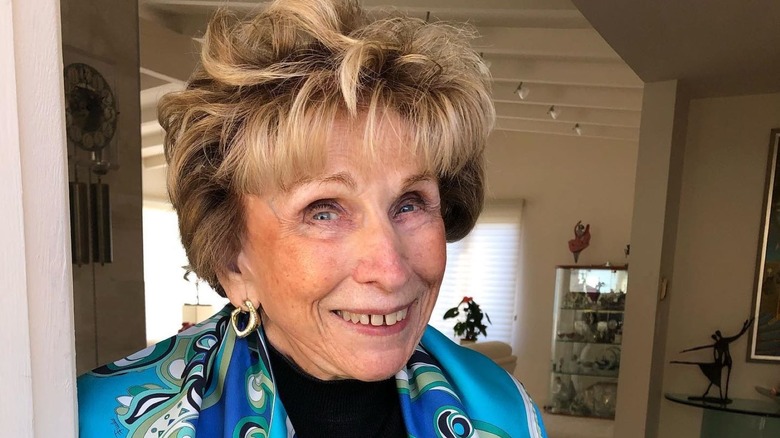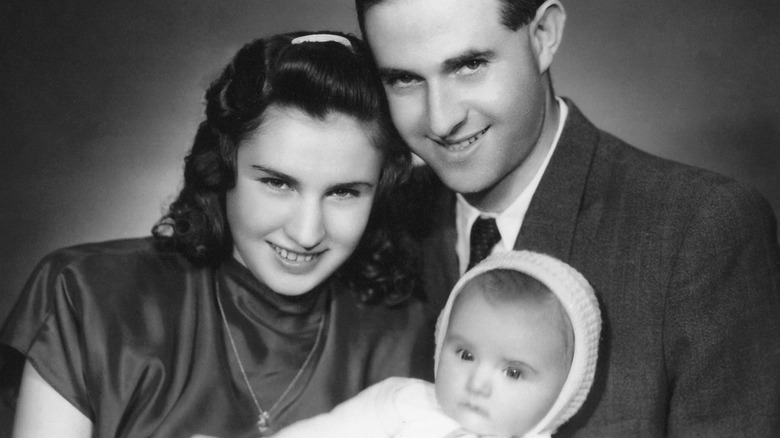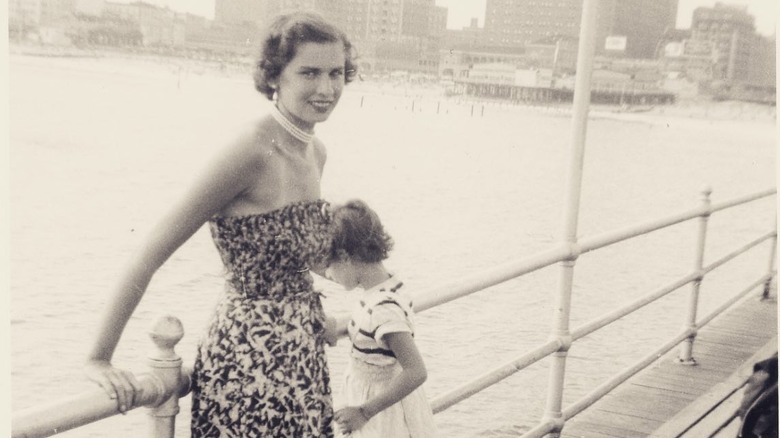Psychologist And Holocaust Survivor Dr. Edith Eger Talks Dealing With Survivor's Guilt After Loss - Exclusive
This article contains discussion of mental health and the Holocaust.
When people suffer a traumatic loss, they often feel "survivor's guilt." According to Psychology Today, people feel survivor's guilt when they have survived a circumstance that killed other people. Survivor's guilt is common among people who've experienced fatal crashes and natural disasters, as well as survivors of mass casualty events like wars or the Holocaust.
Dr. Edith Eger is one of the many who've suffered from survivor's guilt. She was one of the few people who survived Auschwitz, the concentration camp where the Nazis murdered more than 1 million Jewish people. Her mother was among those killed, taken to the gas chamber the same day her family arrived at Auschwitz. Dr. Eger's father also died in Auschwitz, but she and her sisters managed to survive.
It took her years to confront the trauma and grief of losing her parents and witnessing a genocide. She admitted, "The horror is still with me." However, Dr. Eger has done the healing work necessary to keep from getting stuck in that horror and her survivor's guilt. In an exclusive interview with Health Digest, she shared her advice for those struggling with survivor's guilt and how she's broken free from the trauma she endured.
'We cannot change our past'
For Dr. Edith Eger, one of the first steps in moving through her survivor's guilt and finding joy again was acknowledging that she had no control over what happened to her or her family.
"Till the day I die, I will grieve the loss of my parents, who never got to see four generations rise from the ashes of their deaths," she said. "We cannot change our past, but we can change how we think about it. When we can start to remember and rediscover that strength, peace, and wisdom are already within us, we can develop a newer, healthier relationship with ourselves."
Dr. Eger explained that every day, for the rest of their lives, survivors have choices that they didn't have in the midst of their trauma. She emphasized that to reframe the past and let go of survivor's guilt, every survivor has to make the active choice to heal. They can choose freedom by choosing love and hope.
However, choosing freedom, love, and hope is far from easy. In order to make these choices, survivors have to face their trauma and move through it to heal.
Facing the past without getting stuck there
Dr. Edith Eger learned the hard way that trying to bury trauma doesn't work.
"There's no freedom in minimizing what happened, or in trying to forget," she said. "But remembering and honoring are very different from remaining stuck in guilt, shame, anger, resentment, or fear about the past. I can face the reality of what happened and remember that although I have lost, I've never stopped choosing love and hope."
Dr. Eger explained that the only way to face the traumas of the past without getting stuck is to go through the memories piece by piece and process them.
"We have to go through the grief work to find forgiveness — for ourselves, for our family, for those that have harmed us," she said. "By acknowledging the pain and suffering and then finding ways to also see the gifts that have emerged in me because of my past can I begin to find inner peace."
In her new online course, "Unlocking Your Potential," Dr. Eger — who got her Ph.D. in psychology decades ago — leads participants through this grief work so that they can free themselves from their pasts and live fully in the present. The 10-module course shows people how to confront their painful memories, walk through the feelings they bring up, like survivor's guilt, and release them.
You can sign up for Dr. Eger's course here, and for the latest news and resources, please follow Dr. Eger's Instagram.



